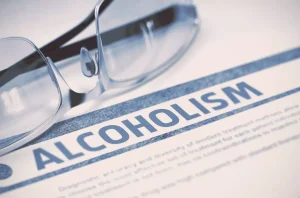
With the love and support of your family, and loved ones, we make sure to treat your addiction by understanding the root reasons behind it. We do everything in our power to help you succeed in breaking the cycle of addiction, and know that with the right kind of help, everyone is capable of healing. Contact us and we can begin the process of building a life worth living. People with end-stage alcoholism may be at higher risk of bacterial or viral infections and other illnesses. Instead, people may experience worsening symptoms of this condition as time goes on. Heavy alcohol use for prolonged periods can lead to inflammation of the liver, called hepatitis, which eventually leads to permanent liver scarring, called cirrhosis.

Severe Alcohol Use Disorder
However, many people who are on track to develop an alcohol use disorder do need to drink more to reach their desired level of intoxication. This is because they have developed a tolerance for alcohol, which contributes to the likelihood that they will become addicted. In its earlier stages, alcoholics suffering from Wernicke-Korsakoff syndrome may be treated through taking Vitamin B-1, proper nutrition and abstinence from alcohol. Even with treatment, some people may not be able to regain full brain function.
End-Stage Alcoholism and Associated Health Disorders
On average, end-stage alcoholics have their lives shortened by 30 years due to the diseases that are directly linked to their drinking. Those in the end stage of alcoholism, or late or deteriorative stage, are consumed by their drinking. Years of chronic alcohol consumption have ravaged their body and mind, and their lives revolve around little else other five stages of drinking than the bottle. By the time they’ve reached the third and final stage of alcoholism, drinking has consumed their lives. Their alcohol withdrawal symptoms are so severe that they must drink continually to avoid them. Treatment options for end-stage alcoholism may include hospice care, palliative care, or hospitalization to manage complications.
Understanding Vivitrol: A Guide to Its Role in Addiction Recovery
Factors like peer pressure, easy access to alcohol, stress, exposure to violence and lack of family or community support can all contribute to initial alcohol use and the development of alcoholism. Additionally, societal and cultural practices related to drinking can further increase the pressure to begin or continue drinking. While your environment is rarely the only factor that leads to end-stage alcoholism, it can be a major contributor. Sometimes medications may be used in alcohol addiction treatment. These medicines can help reduce the negative side effects of detoxification and withdrawal.
Prolonged Alcohol Abuse
The alcoholic probably isn’t sleeping or eating well at this point and may not be keeping up with personal hygiene. Alcohol-induced blackouts are also a common part of this stage and may result in large amounts of time lost, such as several hours or even an entire day. During these blackouts, you may not remember where you went, what you did, or who you were with, which could have very harmful physical and mental consequences. During end-stage alcoholism, a person may struggle with involuntary rapid eye movement (nystagmus) or weakness and paralysis of the eye muscles due to thiamin (vitamin B1) deficiency. This deficiency can also cause dementia if not treated immediately.

- Finally, support groups, such as AA, can support the individual and give them a sense of accountability.
- Finally, it is essential to highlight that going from one stage to another depends on several factors, including genes, brain function, and environmental factors.
- For instance, naltrexone, acamprosate, and disulfiram are the drugs that fall under this category.
- Intoxication occurs when the blood alcohol levels rise faster than the rate at which the liver can metabolize the alcohol.
Recovered is not a medical, healthcare or therapeutic services provider and no medical,psychiatric, psychological or physical treatment or advice is being provided by Recovered. Ifyou are facing a medical emergency or considering suicide or self harm, please call 911immediately. In fact, recent research by The Recovery Village has found heavy drinking can increase your risk of cancer by 48% by itself. Treatment involves quitting drinking, which can be difficult for an end-stage alcoholic.
As others begin to realize you may have a drinking problem, you start to realize it too, although you may still be in denial. Alcoholism is a dangerous and life-altering disease that can seriously affect your health and well-being. However, it is never too late to seek help and turn things around.

Early Stage Alcoholism: Signs, Symptoms & Health Effects

Even though alcohol has become a significant part of everyday life, early-stage alcoholics often deny that they have a problem and may be defensive about their drinking. They may also rationalize, or make excuses, for their behavior and insist they can stop drinking whenever they feel like it. This can contribute to harmful drinking patterns that may gradually shift into alcoholism down the line. It’s common to feel like you need alcohol just to get through the day and you may wake up with the shakes, which can only be calmed with a tall glass of an alcoholic beverage. At this point, life outside of alcohol feels empty and you’ve lost all interest in the things you previously enjoyed doing.

The cost of rehab shouldn’t hold you back from getting the help you deserve
People get medications, therapy, support groups, and other evidence-based treatments. These therapies help people address the complex roots of their substance abuse and move forward. Long periods of heavy drinking can cause liver damage and disease, including a condition called cirrhosis.
If willing, a person with an AUD can get stabilized with recovery. This step aims to transition from drug use to detox to treatment. From there, you will work on maintenance (learning to live sober) and, finally, transcendence or full recovery.

Leave a Reply